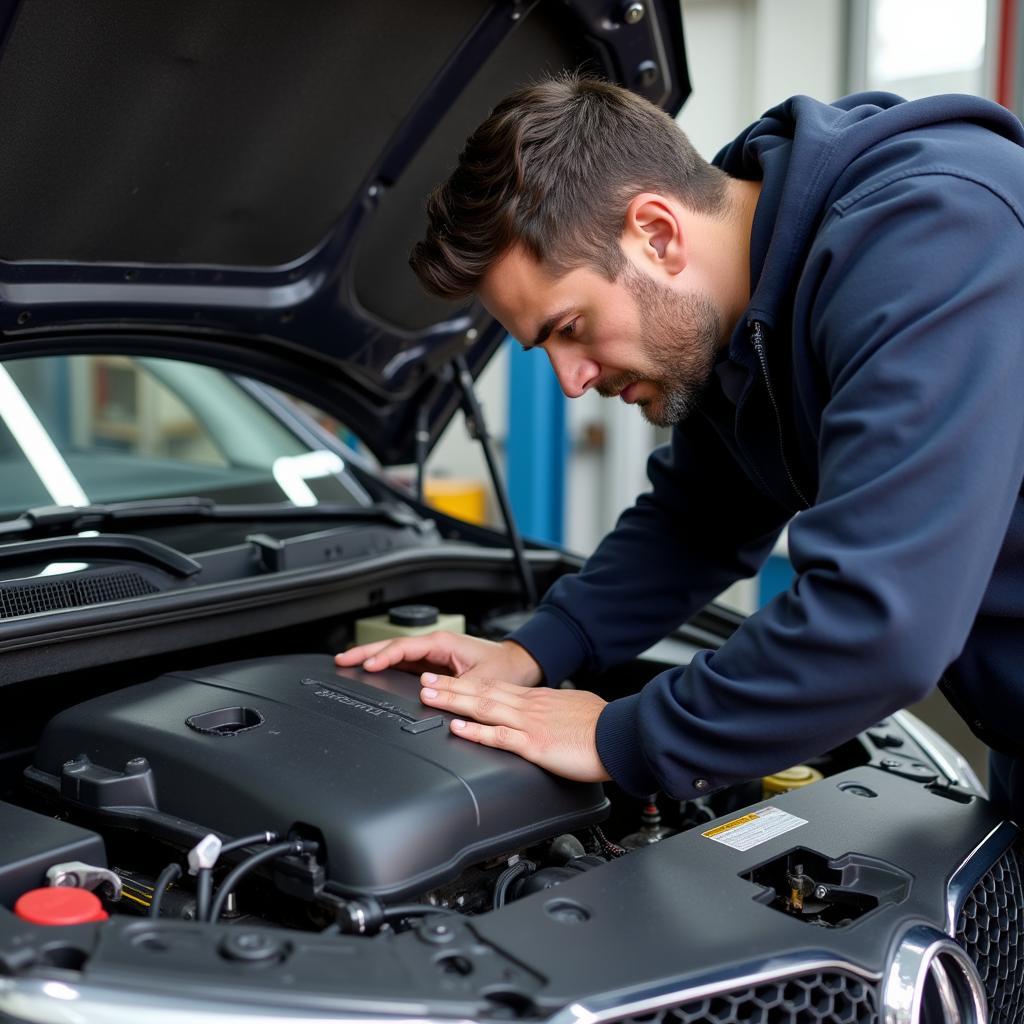When Must You Service Your Car? A Comprehensive Guide
When Must You Service Your Car? Regular car maintenance is crucial for safety, performance, and longevity. Understanding your car’s specific needs and adhering to a proper maintenance schedule can prevent costly repairs down the road and ensure a smooth, reliable driving experience. This guide will delve into the intricacies of car servicing, helping you determine the optimal maintenance schedule for your vehicle.
Maintaining customer satisfaction is key for any successful car service business. Having a robust must-have customer care service solution is vital in today’s competitive landscape.
Understanding Your Car’s Service Intervals
Different vehicles have varying service requirements. Your car’s manufacturer provides a recommended maintenance schedule in the owner’s manual. This schedule outlines specific service intervals based on mileage or time, whichever comes first. Common service intervals include every 3,000, 5,000, 7,500, or 10,000 miles.
Decoding the Maintenance Schedule
The maintenance schedule typically includes routine tasks like oil changes, filter replacements, tire rotations, and fluid top-offs. It also outlines more complex procedures like spark plug replacements, timing belt changes, and transmission fluid flushes at higher mileage intervals. Understanding this schedule is the first step in answering the question, “When must you service your car?”
Factors Affecting Service Intervals
While the manufacturer’s schedule provides a good baseline, several factors can influence when you need to service your car. Driving conditions, climate, and driving habits all play a role.
Driving Conditions and Climate
Extreme temperatures, frequent stop-and-go driving, and driving on rough terrain can put extra stress on your vehicle’s components. If you regularly encounter these conditions, you might need to service your car more frequently than the manufacturer recommends.
Driving Habits
Aggressive driving, such as rapid acceleration and hard braking, can also accelerate wear and tear on your car. If your driving style leans towards the aggressive side, consider adjusting your service intervals accordingly.
Listening to Your Car
Pay attention to any unusual noises, vibrations, or warning lights. These can be early indicators of potential problems that require immediate attention. Addressing issues promptly can prevent them from escalating into more significant and expensive repairs.
A comprehensive must-have customer care definition service will outline the various aspects of customer support, ensuring your car service business provides top-notch assistance.
The Importance of Regular Servicing
Regular car servicing offers a multitude of benefits, including improved safety, enhanced performance, increased fuel efficiency, and extended vehicle lifespan.
Safety First
Regular maintenance ensures that critical safety features like brakes, tires, and steering are in optimal condition, minimizing the risk of accidents.
Performance Boost
Regularly servicing your car can help maintain its performance and prevent issues that could lead to decreased power, sluggish acceleration, and reduced fuel economy.
 Regular Maintenance for Optimal Vehicle Performance
Regular Maintenance for Optimal Vehicle Performance
Fuel Efficiency
Properly maintained engines run more efficiently, leading to better fuel economy and cost savings at the pump.
Longevity
Consistent servicing can significantly extend the lifespan of your vehicle by preventing premature wear and tear on critical components.
When to Seek Professional Help
While some routine maintenance tasks can be performed at home, it’s essential to seek professional help for more complex procedures. A qualified mechanic has the expertise and tools to diagnose and repair issues effectively.
Choosing the Right Car Service Provider
Selecting a reputable car service provider is crucial for ensuring quality workmanship and reliable service. Look for certifications, online reviews, and recommendations from trusted sources.
Having a must-have customer care center services list readily available can significantly enhance customer experience and build trust.
What If You Skip Service?
Neglecting regular car servicing can lead to various problems, ranging from minor inconveniences to major mechanical failures. Delayed maintenance can also void your vehicle’s warranty.
The Consequences of Skipped Service
Skipping service can result in reduced fuel efficiency, decreased performance, increased emissions, and costly repairs down the line.
Conclusion
When must you service your car? The answer depends on various factors, but adhering to the manufacturer’s recommended schedule and considering your driving conditions and habits are crucial. Regular servicing is an investment in your car’s longevity, performance, and your safety. Don’t wait for problems to arise; proactive maintenance is always the best approach.
FAQ
- What is included in a basic car service?
- How often should I rotate my tires?
- What are the signs of a failing alternator?
- How do I check my engine oil level?
- Why is it important to change my car’s air filter?
- How can I find a reliable car mechanic?
- What is preventative maintenance?
Common Scenarios and Questions:
- Scenario: My car is making a strange noise.
- Question: Should I take it to a mechanic immediately?
- Scenario: I’m going on a long road trip.
- Question: What should I check before I leave?
- Scenario: My check engine light is on.
- Question: What should I do?
Further Reading and Resources
For more information on customer care services, please explore these articles: must-have what is customer care services and must-have customer care service agents.
Need Assistance? Contact us via WhatsApp: +1(641)206-8880, Email: [email protected], or visit us at 456 Oak Avenue, Miami, FL 33101, USA. Our customer care team is available 24/7.

